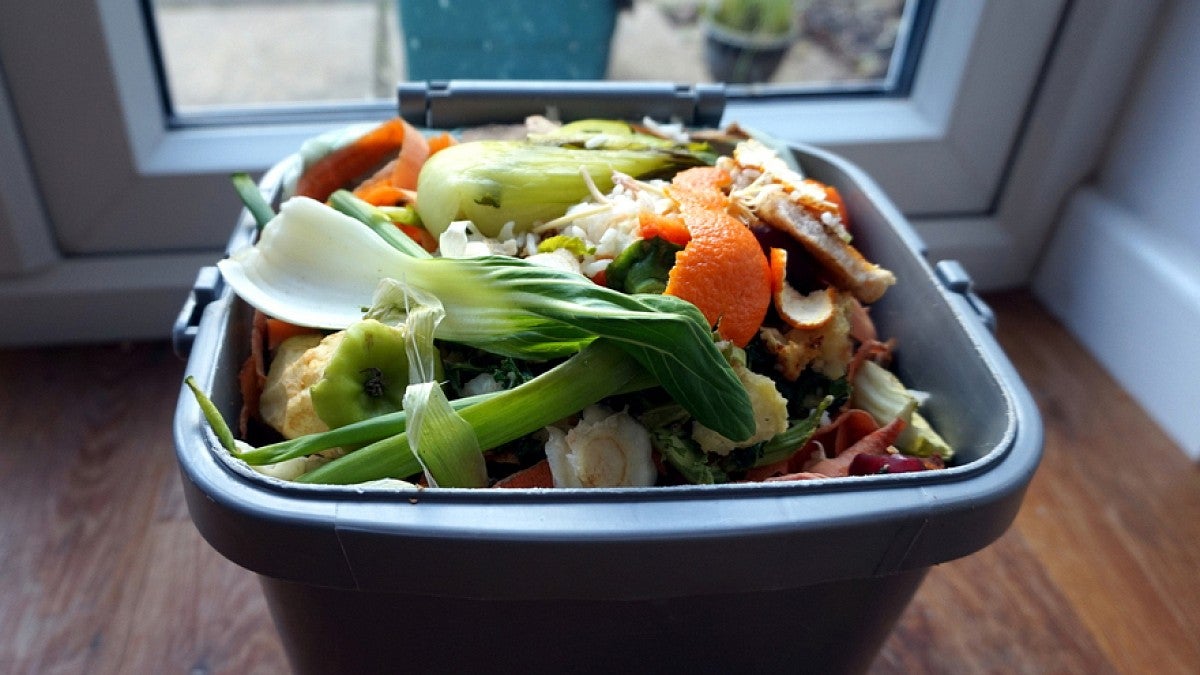The recent rise in compostable packaging has begun to compromise citywide composting programs, resulting in more changes to how University of Oregon students and employees dispose of their waste on campus.
According to an announcement from composting industry leaders in Oregon, nonfood items labeled compostable — like napkins, plates and cutlery — don’t break down, hurt compost resale value, and increase facility cost and workload
Starting July 1, the UO Zero Waste Program’s campus compost bins will accept food scraps only, sending various materials that were once compostable, such as napkins and chopsticks, to the trash. Signage, equipment and sorting guidelines are planned to be fully updated by June 30, according to Karyn Kaplan, Zero Waste Program manager.
Despite the new restrictions forcing more materials into the trash, the UO Zero Waste Program hopes to remain at the forefront of proper waste management by educating the community and offering various waste reduction opportunities.
“As there have been recent changes in recycling and now compost collection, the UO is working hard to ensure recycling and composting are here for the long haul,” Kaplan said. “The Zero Waste Program recovery rate continues to trend over 50 percent for the past five years while adjusting to and minimizing market impacts.”
She said students can also use this time to question how they can reduce their own waste on campus in the wake of more exclusive composting requirements. Kaplan stresses the importance of buying recyclable products, following sorting guidelines, taking only what you need and using reusable containers to easily reduce waste.
Campus currently has few public food scrap collection sites, with most available in department kitchens, dining halls and cafes. Due to high amounts of contamination, the remaining public compost sites will be phased out after spring term finals week, Kaplan said.
However, the Zero Waste Program will continue to offer a voluntary office food scrap collection program for departments and individuals looking to participate in campus composting initiatives. To sign up for the program email compost@uoregon.edu or call 541-346-2354.
Participants in the voluntary collection program will receive a two-gallon desk-side bin labeled “Food Scraps Only.” It is the responsibility of the department or individual to ensure the food scraps collected are being delivered to the collection site on the building loading dock.
“The Zero Waste Program is working with campus stakeholders in campus cafes, kitchens and food service areas to assist and ensure that food scraps will continue to be collected and processed,” Kaplan said. “Zero Waste will continue to work all of the larger campus events such as street fair, folk fest and commencement.”
Zero-waste event services include proper glass and bottle recycling as well as food scrap collection and water refill stations for catered events. To plan a zero-waste event, email pchesbro@uoregon.edu.
In addition to adopting the new composting rules, the Zero Waste Program will continue to offer and adapt various waste reduction opportunities on campus, including the reusable office supply exchange, also known as ROSE, office clean-outs, surplus furniture locations, junk mail reduction and more.
To learn more about the new composting rules on campus, read the updated materials handling guidelines or get involved with the program, visit the UO Zero Waste website.
—By Bryan Dorn, University Communications


